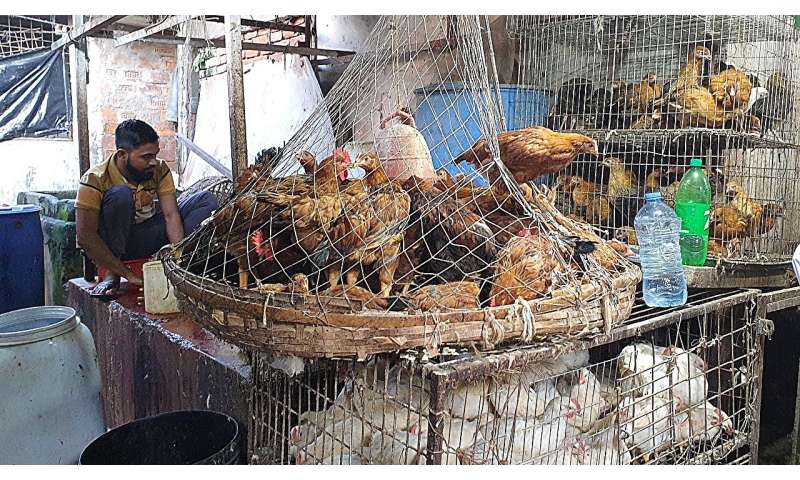New tech for tracking livestock disease threats and supporting smarter One Health interventions developed at City Univer

A cutting-edge computer tool that enables the mapping and tracking of the avian influenza virus across time and space will allow decision-makers to better understand infectious disease threats associated with global food systems and more effectively target actions and interventions to minimise risk, according to research at City University of Hong Kong (CityUHK).
The rationale for the project is that the intensification of livestock farming and the increasing complexity of food systems have created opportunities for pathogens to emerge and spread, undermining efforts to ensure sustainable food production, according to Dirk Pfeiffer, Chow Tak Fung Chair Professor of One Health and Director of the Centre for Applied One Health Research and Policy Advice at CityUHK.
The innovative model is known as EPINEST (EPIdemic Network Simulation in poultry Transportation systems). It has been developed by the Hub team to track the spread of avian influenza viruses (commonly known as "bird flu"), bacteria causing food poisoning (such as campylobacter and salmonella), and bacteria carrying antimicrobial resistance genes through networks of farms, markets and transport systems of broiler chickens in Bangladesh.
EPINEST functions as an agent-based modelling system that connects people, livestock and production spaces in the poultry production and distribution network. By incorporating empirical data from various disciplines, such as farm size, distance between farms, duration of bird stays in different network segments, and trading and mixing patterns during the journey from farm to fork, the model accurately predicts disease risks at different points in the network. Biological data obtained from sampling chickens and sequencing pathogens further enhances the model's accuracy in evaluating disease potential.
Unlike previous modelling efforts that focused on disease transmission in limited settings, such as farms and markets, EPINEST takes a systemic perspective on pathogen spread throughout the production and distribution networks. The Hub team successfully utilised EPINEST to simulate the dynamics of avian influenza viruses and map the early spread of emerging strains across farms and markets. By simulating multiple virus variants simultaneously, the team identified patterns of virus mixing and trading practices that contribute to increased mixing, which can potentially lead to the emergence of more dangerous strains.
"Avian influenza poses a constant global threat to poultry production, necessitating the frequent culling of birds and having adverse impacts on animal welfare and livelihoods. Additionally, it has devastated wild bird populations and is a concern for potential human influenza epidemics and pandemics," said Pfeiffer. "Food poisoning caused by campylobacter and salmonella carried by poultry also imposes a significant burden on global public health."
"EPINEST allows policymakers and decision-makers to effectively target interventions and assess their impact in reducing disease risks," he said.
CityUHK's partners in the Hub team include scientists from the University of Oxford, Royal Veterinary College, Chattogram Veterinary and Animal Sciences University, The University of Queensland, and the London School of Hygiene and Tropical Medicine.
One Health is the foundational philosophy behind the establishment of the Jockey Club College of Veterinary Medicine and Life Sciences at CityUHK. Our vision is to create a centre of excellence in veterinary and biomedical education and research under the One Health paradigm to enhance public health, food safety, and animal welfare, and help prevent and control infectious diseases in Hong Kong and the region.
Provided by City University of Hong Kong